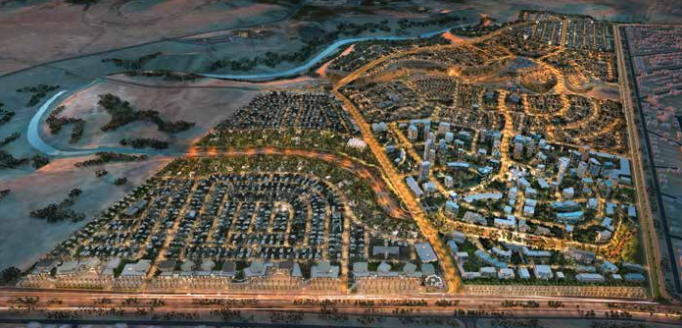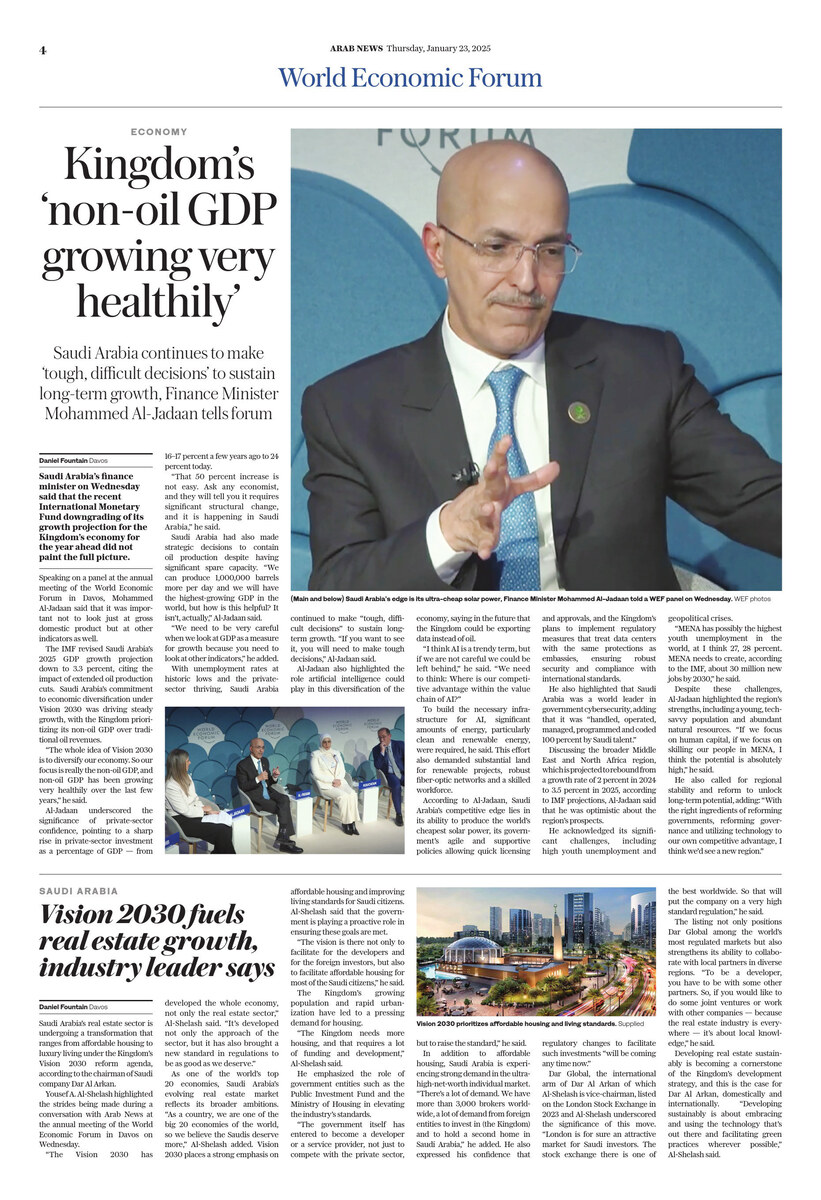MUMBAI: Three days before Dr. Reddy’s Laboratories announced quarterly results this summer, a message circulated on a private WhatsApp group saying the Indian drugmaker would not post good numbers.
Dr. Reddy’s was going to report a loss, according to the message on the “Market Chatter” group, which was posted on July 24 from a mobile phone number that Reuters traced back to Nishant Vass, an auto analyst at ICICI Securities, a leading Indian brokerage. The WhatsApp group had 45 members, mostly traders.
The loss would have been a surprise to many analysts, as consensus forecasts compiled by Thomson Reuters at the time showed expectations of a profit of 3 billion rupees.
The message proved prescient: On July 27, Dr. Reddy’s reported a loss of 587 million rupees (SR33.6 million) — a result its chief executive said was “below expectations,” sending shares down as much as 4.4 percent.
The post that circulated in the WhatsApp group three days earlier had predicted a loss of more than 500 million rupees.
A person who identified himself as Vass returned a call from Reuters using the telephone number from which the Dr. Reddy’s numbers had been posted on the WhatsApp group. He denied writing or sharing posts in the group, adding later in a separate WhatsApp message from the same number that it was “totally baseless” that he had done so.
Reuters has documented at least 12 cases of prescient messages about major Indian companies, including Dr. Reddy’s, being posted in private WhatsApp groups.
Two of the messages appeared in the transcripts of six groups reviewed by Reuters, including the “Market Chatter” group where the Dr. Reddy’s numbers appeared. The others were shared on condition of anonymity by two other members of other WhatsApp groups.
The posts with prescient numbers in the WhatsApp groups were circulated hours or days before official company statements.
The messages shared could involve lucky guesses or astute forecasts based on publicly available information, and not all metrics shared among the 12 cases were exactly the same as reported.
Reuters could not determine where the numbers posted on the WhatsApp groups originated or whether any of the market participants who received the messages had traded on the basis of the numbers they had seen.
According to two lawyers who were formerly senior officials at the Securities and Exchange Board of India (SEBI), the country’s capital markets regulator, if any numbers being posted on WhatsApp groups were determined by regulators to be “unpublished price-sensitive information,” the people circulating them would be breaking the law.
“The mere sharing of information that could be unpublished insider information is outlawed, even if you don’t misuse the information to trade on it,” said Sandeep Parekh, a lawyer with Finsec Law Advisers who used to head SEBI’s enforcement division.
SEBI did not respond to requests for comment.
India significantly toughened insider trading rules in early 2015, expanding what constitutes “unpublished price-sensitive information” to include “any information” that is not “generally available” and that could have a market impact.
The law also expanded the scope of who constitutes an “insider” to include “anyone in possession of or having access to unpublished price-sensitive information” regardless of how they came “in possession of or had access to such information.”
“You don’t need to have gotten inside information from a company. You could get it from anywhere,” said Vaneesa Agrawal, a partner with Suvan Law Advisers who formerly worked in SEBI’s legal department. “As soon as you have information that could be insider information you are an insider, and you are not supposed to either pass it on or trade on it.”
Circulating “unpublished price-sensitive information” can result in penalties of up to 250 million rupees and a jail term of up to 10 years. The monetary amount can be higher if it can be proven that an individual traded on such information.
ICICI Securities said in a statement that it had “zero tolerance toward any dissemination of unpublished price sensitive information and has an appropriate framework to safeguard confidentiality of information.”
Dr. Reddy’s said it was “not aware of any information related to its financial results being circulated externally ahead of statutory disclosures that are made officially by the company.”
The messages about the 12 companies with prescient information obtained by Reuters involved mostly what were characterized as being upcoming quarterly results, including specific metrics such as net profits, revenues and operating margins.
They also included messages about upcoming bonus share issues or revenue guidance.
Seven of the companies are part of the benchmark NSE index : Dr. Reddy’s, the drug maker Cipla, Axis Bank, HDFC Bank, Tata Steel, the IT services company Wipro and Bajaj Finance .
The other five were Mahindra Holidays and Resorts, Crompton Greaves Consumer Electricals, the IT services providers Mindtree and Mastek , and India Glycols, a petrochemicals company.
Wipro, Bajaj Finance, HDFC Bank, Mastek, Crompton Greaves, Cipla and Mahindra Holidays said they were not aware messages referring to their upcoming results or announcements had circulated in WhatsApp, and that the companies adhered to strict standards of guarding sensitive company information.
Axis Bank, Tata Steel, India Glycols, Mindtree did not reply to requests for comment.
WhatsApp, which is owned by Facebook, responded to a request for comment by pointing to its terms of service, which state users can use the platform only for “legal, authorized, and acceptable purposes.”
Many of the postings in the WhatsApp groups are referred to as “HOS,” for “Heard on the Street.”
In one typical post on July 25, Fanil Motiwalla, a contractor for a small brokerage, Arcadia Share & Stock Brokers, posted a set of numbers for Axis Bank, India’s third-largest private lender. Motiwalla works as a sub-broker, who are typically hired as contractors by securities firms in India to recruit customers.
“This HOS is going around for Axis,” Motiwalla said when posting the numbers, which included key metrics such as gross non-performing assets and net interest margins.
Later that day, Axis Bank reported results that closely matched the final numbers in Motiwalla’s message.
Arcadia said it had policies in place to prevent employees from passing on “illegal information.”
Motiwalla said he just reposted a message that had already been circulating in the market and he did not consider it inside information.
“How do I know if this is coming from inside information? This could come from many sources,” he said. “This information comes from different groups, and we just post it.”
Arcadia said every sub-broker it hired was given a copy of SEBI’s rules, adding, “whatever the alleged message sent by him is not sourced from Arcadia,” referring to Motiwalla.
Below are examples of the numbers being circulated with an explanation of local market abbreviations and terms.
DR. REDDY’S:
POSTED MESSAGE (July, 24, 2017)
“Fwd HOS: Dr. reddy to report loss of more than 50cr vs exp of 280 to 300cr pat. No one offs“
(Forwarded Heard on the Street: Dr. Reddy’s to report a loss of over 500 million rupees ($7.7 million) vs expectations of an after tax profit of 2.8 to 3 billion rupees. No one off items.)
COMPARISON WITH OFFICIAL RESULTS:
On a consolidated basis under Indian accounting standards, Dr. Reddy’s posted a loss of 587 million rupees. The message had forecast a loss of more than 500 million rupees.
HDFC BANK:
POSTED MESSAGE (July, 21, 2017)
“Hearing Hdfc Bank PAT @ 3900 crs & 1.25 GNPA vs 1.04“
(Profit after tax will be 39 billion rupees and gross non-performing asset ratio will be at 1.25 percent vs 1.04 percent.)
“Consensus estimate is 3950 crs. Our estimate is 3973 crs so 3900 is not a good number. Numbers on Monday.”
(Consensus estimate 39.5 billion rupees, our estimate 39.73 billion rupees.)
COMPARISON WITH OFFICIAL RESULTS:
HDFC Bank posted a profit after tax of 38.94 billion rupees. Its GNPA was 1.24 percent. The message had predicted a profit of 39 billion and a GNPA of 1.25 percent.
AXIS BANK:
POSTED MESSAGE (July, 25, 2017)
“Gnpa 5.03; Nnpa 2.30; Nim 3.63; Slippages 8000 cr – only 35 percent from wishlist; Write off 2300 cr; Casa 48.33; This HOS is going around for Axis“
(Gross non-performing assets (GNPA) 5.03 percent; net non-performing assets (NNPA) 2.30 percent; net interest margins 3.63 percent; slippages will be mostly from outside the watch-list; Write offs of 23 billion rupees; Current and savings account (CASA) deposits at 48.33 percent)
COMPARISON WITH OFFICIAL RESULTS:
GNPA: 5.03 vs 5.03; NNPA: 2.30 vs 2.30; NIM: 3.63 vs 3.63; Slippages: 35.19 billion rupees vs 80 billion rupees (majority were from outside watch-list); Writeoff: 24.6 billion rupees vs 23 billion rupees; CASA: 49 percent vs 48.33 percent.
TATA STEEL:
POSTED MESSAGE (May 16, 2017)
“Hearing Tata steel Revenue — 33,900. (net excise), Ebitda 7000, EBIT 5400, PBT 257, PAT -700. Exceptional item -4000.”
(Revenue 339 billion rupees; Earnings before interest, taxes, depreciation and amortization (EBITDA) 70 billion rupees; earnings before interest and taxes (EBIT) 54 billion rupees; profit before tax (PBT) is 2.57 billion; profit after tax (PAT) loss of 7 billion; one-time items 40 billion rupees)
COMPARISON WITH OFFICIAL RESULTS:
Gross sales 348 billion vs 339 billion; EBITDA 69.82 billion vs 70 billion; EBIT 53.93 billion vs 54 billion; Exceptional items 40.69 billion vs 40 billion; PBT 2.59 billion vs 2.57 billion; PAT loss of 7.17 billion vs loss of 7 billion.
MAHINDRA HOLIDAYS
POSTED MESSAGE (May, 19, 2017)
“Mahindra holidays will declare a bonus today“
COMPARISON WITH OFFICIAL ANNOUNCEMENT:
1 for 2 bonus share issue announced after hours.
































